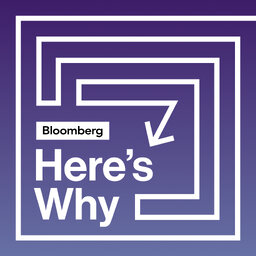In Search of the New SVB and the Future of Cancer Drugs
Opinion columnist Tim Culpan joins the program to discuss the future of startups and venture capitalists who found a home in Silicon Valley Bank. Lisa Jarvis with Bloomberg Opinion digs into the Pfizer-Seagen deal, exploring the possibilities for cancer drug development. Opinion's Jonathan Bernstein also joins, weighing the future of the Republican Party should former President Trump be indicted. And columnist Allison Schrager discusses why workers feel so unhappy, despite ample lesiure time.
In 1 playlist(s)
Bloomberg Opinion
Deeper conversations on the week's most significant developments. Tune in and join in!Social links
Follow podcast
Recent clips

Introducing 'Here's Why' - Complex News Stories Explained
00:30

Airline Mergers and Restaurant Loyalty
35:20

Fossil Fuel Use and Drug Development
35:28
 Bloomberg Opinion
Bloomberg Opinion